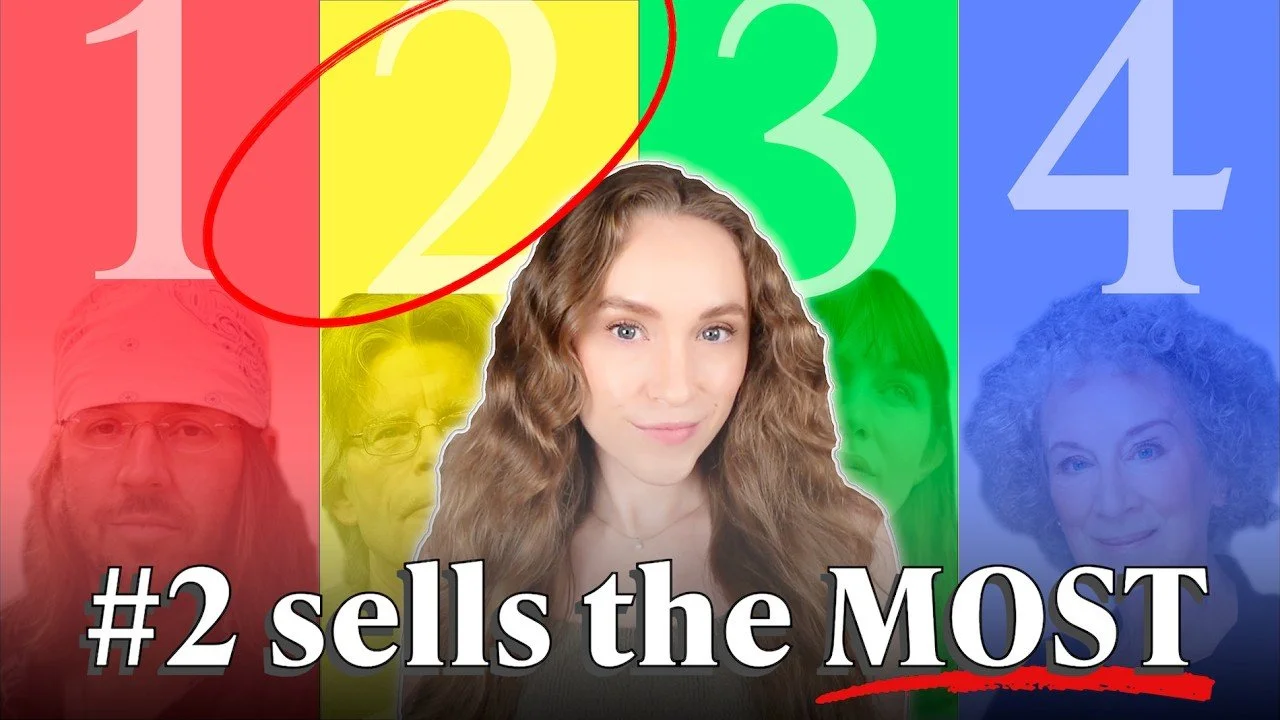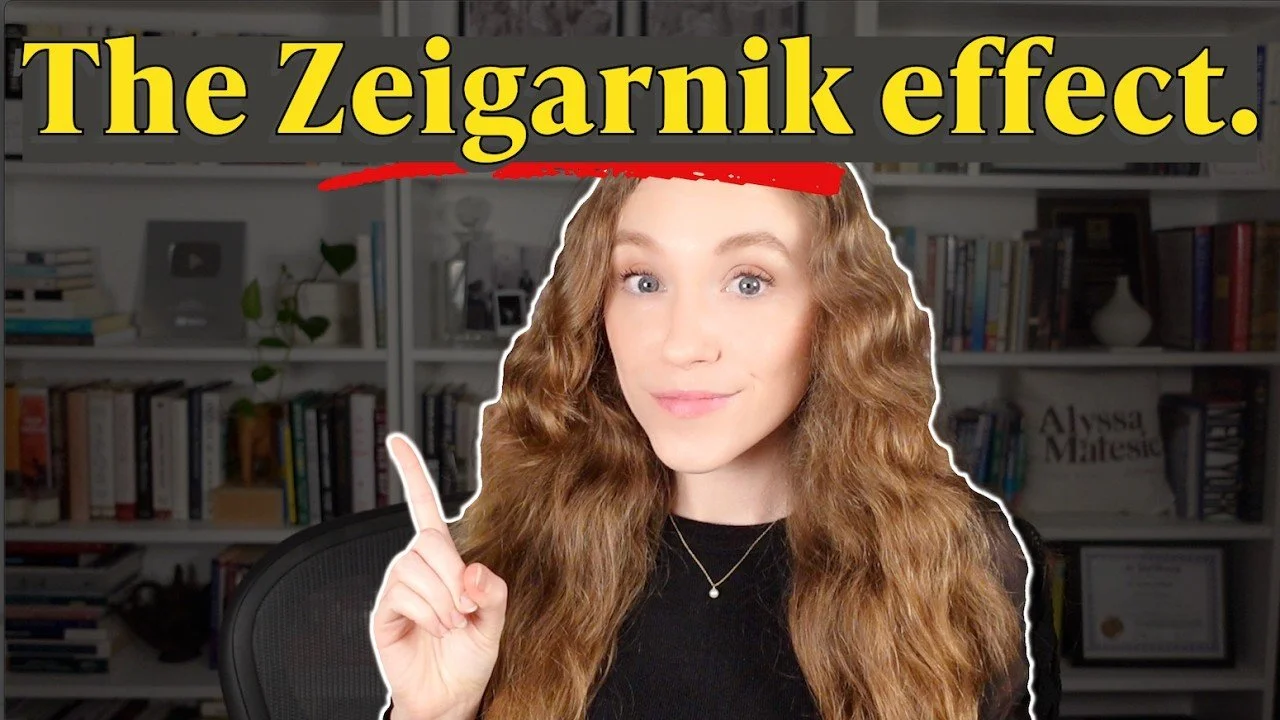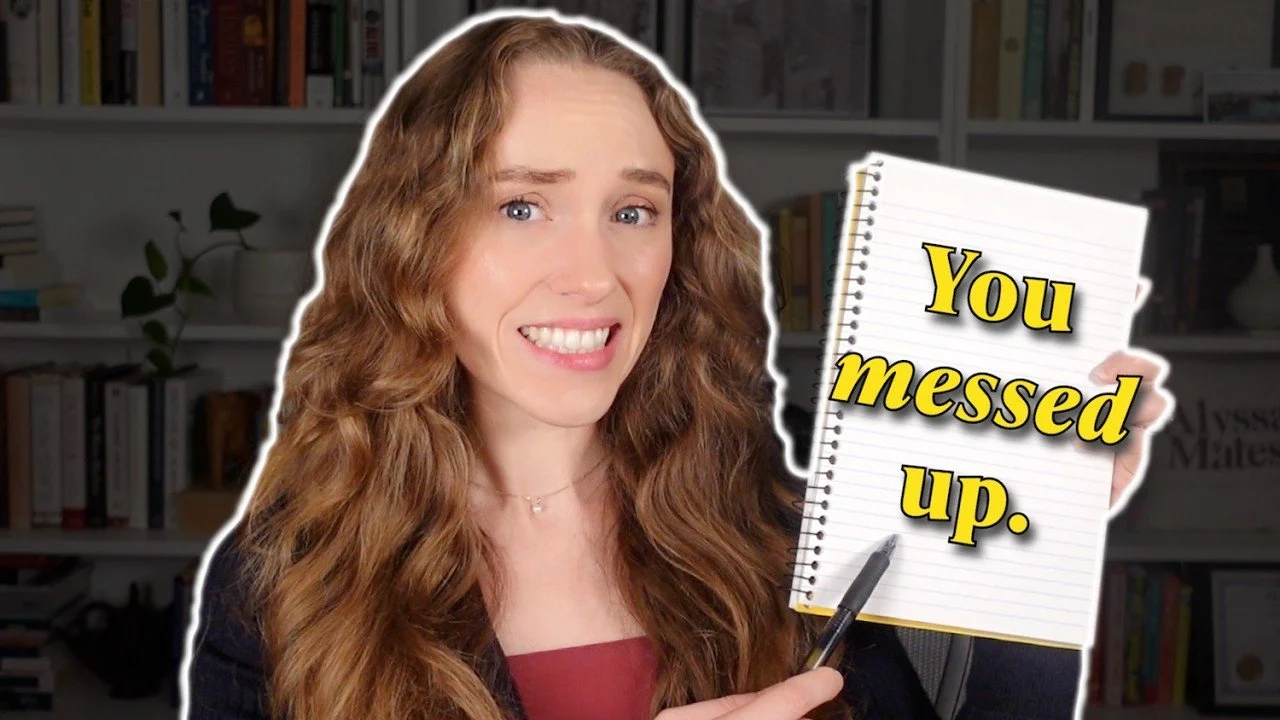Writing a Novel Synopsis: Dos and Don'ts
HIT PLAY OR READ THE POST BELOW:
A novel synopsis is a document that causes writers a lot of stress. You just spent hours upon hours typing away at your draft, only to be stymied by a thousand-word document that is supposed to encapsulate a manuscript that is tens of thousands of words long. Where should you even start: introducing the characters? The setting? The premise?
The first thing I want to tell you is, quite honestly, the synopsis is not that important. While I'm going to help you approach your synopsis and give you some tips for writing one, you need to know there are only two scenarios in which you will be writing a synopsis for a novel submission.
The first is if you are reaching out to literary agents because you want to get your novel published and they request a synopsis as part of the query materials. However, not all agents request a synopsis, so you only need to provide one if it is explicitly asked for.
The second is if you are already in a working relationship with a publisher or an editor at a publishing house and they specifically request a synopsis for your next book. This is to determine if they want to continue working with you on your future project as well as the one you had already worked on together.
So those are the main two scenarios in which you need to write a novel synopsis. But, in general, it’s good practice to be able to condense your story down to so few words. So, in this article, I'm going to offer you the dos and don'ts for writing a synopsis for a novel. Hopefully this makes the process easier and less daunting.
What Is the Difference Between a Synopsis and a Blurb?
The first thing I would like to cover is the difference between a synopsis and a blurb. These two phases often get confused, but they serve different purposes and are stylized in specific ways.
Think of synopses as if you are telling a friend every single bit about your novel from beginning to end. You are recapping it in its entirety so, even though they never read it, they get the gist of what happens. A synopsis is a detailed summary of the major events of a novel, going through its beginning, middle, and end.
The blurb, on the other hand, is more like a movie trailer or the copy on the back cover of a book. You read this when you’re trying to determine if you want to buy the book or not. Blurbs are teasers or previews of what is inside a novel to entice the reader to then purchase it. It does not give away the entire events of the plot. It just gives a taste.
With that distinction made, here are the dos and don’ts of writing a novel synopsis.
Do: Start with the Action
Start your synopsis with the inciting action of the story. In a synopsis, you have to summarize your complex story in a limited space, typically between one to three pages. Meanwhile, your novel is presumably hundreds of pages. So, you need to get straight to the point and start with the point of action that incites the events of the novel.
To illustrate this I'm going to use an example synopsis from SparkNotes about The Hate U Give by Angie Thomas. Here’s the first sentence of the synopsis:
Starr Carter, a sixteen-year-old Black girl, attends a party in her neighborhood, Garden Heights.
Immediately, we can see the first action point of the story. Now, the reader knows something's going to happen at that party, unraveling the rest of the plot.
So, to start your synopsis, get right to the point with the first inciting incident. Don’t worry about making it sound fancy or mysterious. The interesting plot you cooked up will do the work for you.
Don’t: Start with an Overview
Alternatively, you don't want to start the synopsis with an overview or a summary sentence. If you find yourself writing about your novel with its title to describe it, that is an indication you are veering into overview territory. Resist the urge to talk about the novel's themes or its overarching message, because the synopsis is not the place to do so.
Remember, you're not using the synopsis to pitch the book, you are using it to provide a practical summary of your novel's events.
Here’s another example showing what not to do, also using The Hate U Give’s premise:
The Hate U Give explores the effects of racism, police brutality, and activism.
While it's important to understand the story's themes, the synopsis is not the place for that type of discussion. It's out of place because the synopsis should be describing the plot action all the way through. You don't need to provide extraneous context or an editorial discussion of the novel.
Do: Cover All Major Events
In a novel synopsis, you’ll need to cover all the major plot events and storylines. If your novel has multiple character points of view, make sure you are showing the agent or the publisher how those character storylines play out.
One of the biggest mistakes I see writers make is when the synopsis has large gaps in the story, so make sure you are bridging those gaps as much as possible by showing exactly how the events connect to each other. The reader should understand, logically, how each of those developments proceeds from the previous one.
An example:
Starr runs into her childhood best friend, Khalil Harris, whom she hasn’t seen in a long time. Gunshots from a gang fight interrupt the party, and Khalil offers to take Starr home.
The inciting incident of the plot, Starr going to a party, is immediately followed by what happens at the party. Without fuss, the reader sees what happens within the first couple chapters.
Don’t: Go Into Excessive Detail
When writing a novel synopsis, don't go into excessive detail. You are distilling your manuscript down to one to three pages, so you just don't have room to provide the color and texture of your work. All the secondary characters, subplots, and details aren’t going to make it into your synopsis and that is perfectly okay.
Resist the urge to describe minute details in the plot because you need to keep your synopsis at a macro level. Describing each and every scene is going to bog down the synopsis and make it too long.
Let's illustrate this with an example:
Starr runs into her childhood best friend, Khalil Harris, whom she hasn't seen in a long time. Khalil is handsome, with dimples that keep him from looking tough. She asks why she hasn't seen him around and Khalil replies that he's been busy.
So here are two details that don't need to be in the synopsis. First is Khalil’s appearance. While this is a fun detail that helps the reader picture him in their mind, it's not essential to the developments of the plot. Second is the content of what Starr and Khalil said. In this case, it’s not necessary to include the actual words that were exchanged, as they don’t seem to affect the plot.
Now, in your story, there may be a conversation that is important and affects the events of the story; in that case, you can describe what the characters said briefly.
Do: Give Away the Ending
When writing a synopsis for a novel submission, you do want to give away the ending. This may feel counterintuitive, because in most cases you want to save the ending and let the reader experience it for themselves. But remember, the agent or the publisher has specifically requested the synopsis document because they want to see how the story unfolds and they need to be able to assess the ending to determine if it is effective and compelling.
So don’t beat around the bush. Don't make it vague and don't use ellipses. Disclose the information about exactly what happens at the end.
An example:
Starr names several real-life victims of police violence, including Emmett Till. She vows to Khalil that she will never forget and never give up.
Here we see Starr is making a statement and we learn the content of the statement. I like this synopsis closing line because it gives us a sense of the sentiment the novel ends on. We learn Starr has committed to persevering, which means there's optimism at the end of the story.
In your synopsis, see if you can describe the closing events of the novel while giving the reader a taste of what the closing feeling is. Is there closure at the end of the novel or is it a novel ending that is more ambiguous? This information helps the agent and publisher understand the lingering effects your novel will have on the reader.
Don’t: Provide Editorial Commentary
On that note, when writing those closing lines of your synopsis, don't include any editorial commentary. Since the synopsis is meant to be a straightforward and, quite frankly, bland document, it is not supposed to be the most beautifully written piece of writing. Your query letter is actually a much better place for you to pitch the value of your book and why readers are going to love it.
So don't feel compelled to sell your novel in the synopsis. An example of editorial commentary would be:
Underlying the traumatic events of The Hate U Give is the cyclical nature of racialized poverty and, through Starr's deepening understanding of it, we see how this intergenerational cycle is difficult to break.
Again, it’s good to know and be able to articulate what the themes of your novel are. But these messages and themes should be discussed with the agent and publisher via a verbal pitch or via your query letter. In the synopsis, the plot should stand on its own.
What’s the Ideal Synopsis Length?
A question I get asked all the time is about the synopsis length. While I gave the range of one to three pages, what I really recommend doing is having two versions of your synopsis: a long version, which is two to three pages, and a short version, which should be one single page.
This is because some agents will request a synopsis, but they won't say how long it needs to be. In this case, you can send them the longer version that gives a little bit more detail and color. But if the agent specifically requests a one-page synopsis, you are also prepared. This way, you won’t have to scramble to cut down the long synopsis, as you’ll already have a one-page synopsis at hand.
I hope these tips help you tackle writing a novel synopsis. It can be a struggle to write, but by understanding better what the synopsis document is and what it isn't, you can confidently go about summarizing your story effectively.
Thanks so much for reading, and happy writing!





